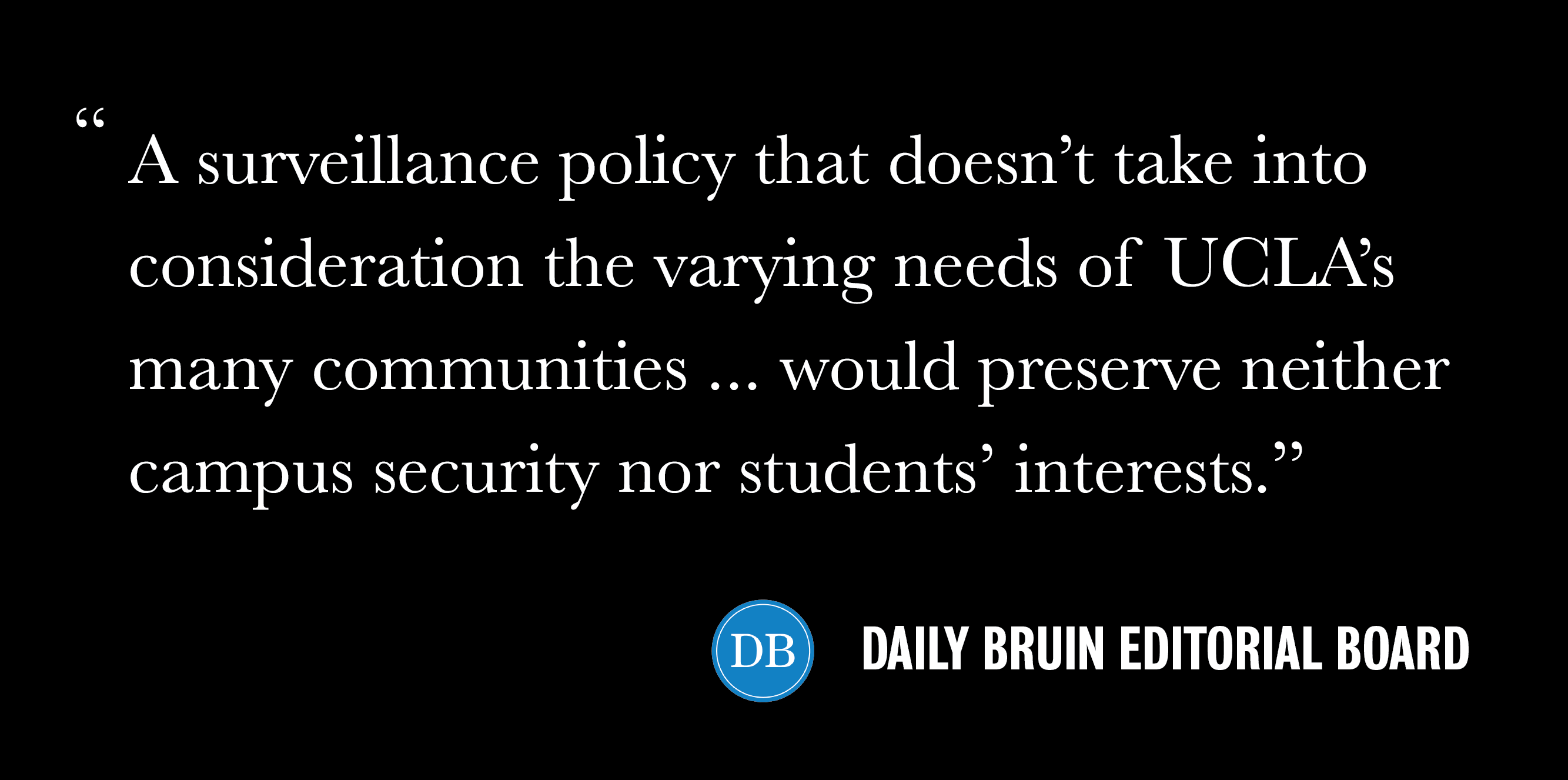Editorial: Student concerns should be considered when implementing on-campus security policy

By Editorial Board
Oct. 17, 2018 10:39 p.m.
UCLA is set on entering the camera business. It might not have a clear idea of how to go about it, though.
Last week, members of the student body heavily criticized the university’s plans to centralize its system of on-campus cameras and allow UCPD officers to access footage in case of emergencies. Students cast the proposed policy in Orwellian terms, arguing UCPD’s access to on-campus cameras would imperil privacy on campus.
The surveillance state may not be best analogy for understanding the new policy, though. UCLA Policy 133, announced last month, can help the university better apprehend those who vandalize university housing and property, deter crime and foster a sense of security in a community confronting an increase in sexual assault and burglary.
Without guardrails, though, it could also break the tenuous trust students have in UCLA.
Policy 133 doesn’t appear to be a malicious abuse of power. The policy’s draft contains some defenses against abuse, such as a requirement that all requests to review footage receive the approval of the Designated Campus Authority, a committee focused on ensuring the administration’s use of camera footage comports with university values and applicable law.
But students’ privacy concerns aren’t misplaced. A surveillance policy that doesn’t take into consideration the varying needs of UCLA’s many communities, despite how well-formulated it is, would preserve neither campus security nor students’ interests.
UCLA must commit to naming a student representative to the DCA, the primary governing body for the new surveillance apparatus. Student representatives can serve as an essential barometer for any future amendments to the policy, and expose any overreach by UCPD or the administration.
That kind of appointment is crucial, given minority students have already raised legitimate concerns about the danger this new policy poses to marginalized communities on campus. Surveillance could unintentionally out LGBTQ students or implicate undocumented student to Immigrations and Customs Enforcement officials.
There are also concerns about students being unwilling to seek counseling or speak to trusted members of the campus community – faculty and employees, for example – if surveillance cameras are installed and the footage is more easily available to UCPD.
The way to address these concerns, however, is not to scrap Policy 133 altogether, but to adapt it to students’ needs. There have been several instances in the past in which lack of security cameras or restricted access have hampered UCPD’s abilities to address hate crimes or burglary on campus.
In fact, last year’s Undergraduate Students Association Council had several discussions about installing security cameras in Kerckhoff Hall following successive discriminatory incidents, including the removal of the student government president’s mezuzah and the etching of a homophobic slur on an officer’s door.
Just like now, the topic of student privacy came up repeatedly in those conversations, with council members expressing many of the same concerns students presented at this month’s town hall. But the council came up with ideas for how to install cameras while maintaining students’ privacy – ideas that stemmed from student leaders’ repeated conversations with members of the student body. UCLA must do the same due diligence and ensure the DCA – now and always – has an ear on the campus’ pulse.
UCLA is right to be concerned about the security of the campus. But until it takes into account students’ concerns and gives them a voice at the table, UCLA should probably hold off on hooking up the cameras.


